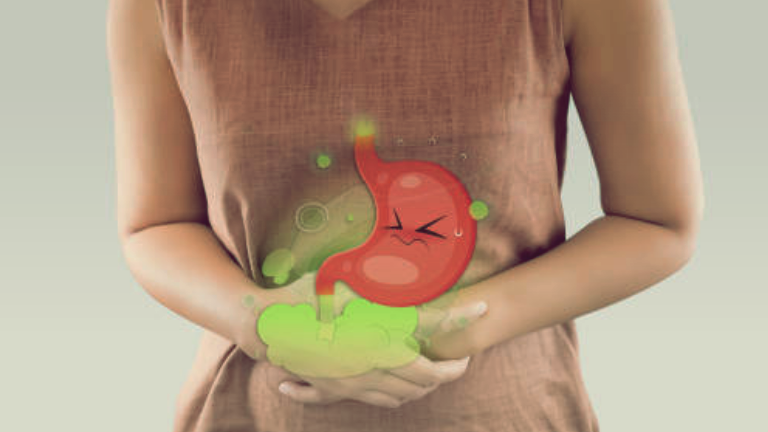Introduction:
Sorbitol is a kind of sugar alcohol generally used as a sugar alternative in sugar-free and “diet” products. Sorbitol is also present in a number of fruits such as: apples, avocados, plums, cherries and etc. While it is generally diagnosed as protected by way of regulatory authorities, consuming huge amounts of it can lead to some side effects, such as diarrhea. Here are some reasons why:
Osmotic Effect:
Sorbitol has an osmotic result that means it can draw water into the intestines. When bump off in excess, this can lead to an increased quantity of water in the intestines, resulting in diarrhea. The osmotic implication of sorbitol is a physiological phenomenon related to its capability to draw water into the intestines. It can be further explained as below:

Incomplete Absorption in the Small Intestine:
When someone take sorbitol, it undergoes fractional absorption in the small intestine. Unlike some other sugars that are categorically absorbed, sorbitol is incompletely absorbed.
Osmotic Pressure in the Intestines:
Since it is now not totally absorbed, it reaches the colon (large intestine) in a partly undigested form. In the colon, it come across a higher awareness of other substances, which include water. The existence of sorbitol in the colon creates an osmotic effect. Osmosis is the movement of water throughout a semipermeable membrane, such as intestine linings, to balance concentrations on each sides. In this case, sorbitol draws water from the body into the intestines.
Increased Water Content in the Intestines:
As water is drawn into the intestines because of the osmotic impact of sorbitol, the extent of liquid in the intestines upsurges. And that accelerated water content softens the stool. and thus it causes diarrhea.
Fermentation by Gut Bacteria: Sorbitol is no longer fully absorbed in the small intestine and reaches the colon, the place it can be fermented through bacteria. This fermentation method can produce fuel and motive bloating, swelling and discomfort.
Individual Sensitivity:
Factually, People alter in their sensitivity. Some people may additionally ride digestive problems even with quite minor amounts, whilst others might also tolerate it well. Individual sensitivity to sorbitol refers to the variant in how people react to the consumption of this sugar alcohol. Sorbitol is approved to have laxative effects. Here’s how person sensitivity plays a role:
Digestive Tolerance:
Some folks may have a superior tolerance for sorbitol and can consume it except experiencing extensive digestive issues. They may additionally not word negative results even with reasonable intake.
Varied Thresholds:
Some individuals may additionally tolerate distinctly large quantities except discomfort, others would possibly journey digestive signs and symptoms even with small quantities.
Gastrointestinal Response:
Individuals with heightened sensitivity to sorbitol may also be more inclined to experiencing symptoms such as diarrhea, bloating, belly cramps, and gas. These symptoms are a result of the osmotic impact of sorbitol.
Underlying Health Conditions:
Certain medical conditions, such as irritable bowel syndrome (IBS) or other gastrointestinal disorders, can also increase sensitivity to it. Moreover, individuals with such stipulations may also be extra susceptible to digestive pain when ingesting sorbitol-containing foods.
Gradual Adaptation:
Some people might also regularly advance a level of tolerance to sorbitol over time. The intestine microbiota can adapt to the presence of positive substances, and this adaptation might decrease the severity of symptoms with endured exposure.
Hydration Status:
Sufficient hydration is paramount for people sensitive to sorbitol. The osmotic impact of sorbitol draws water into the intestines, and staying well-hydrated can assist alleviate the chance of dehydration associated with diarrhea.
Food poisoning, on the other hand, generally caused by contaminated food or water containing dangerous bacteria, viruses, parasites, or toxins. Common signs and symptoms of food poisoning include nausea, vomiting, diarrhea, stomach cramps, and fever. It’s important to note that while sorbitol cause diarrhea, it is also associated with food poisoning. However, food poisoning is typically caused by means of the ingestion of risky bacteria, viruses, parasites, or toxins present in contaminated meals or water.

Conclusion:
If you doubt that sorbitol is causing digestive problems for you, it is really useful to reduce the intake and observe the changes. Furthermore, if you trip chronic or severe symptoms, it is advised to contact healthcare professionals for customized advice. As with any meals ingredient, moderation is key.












I have faced a similar issue, such an insightful article.